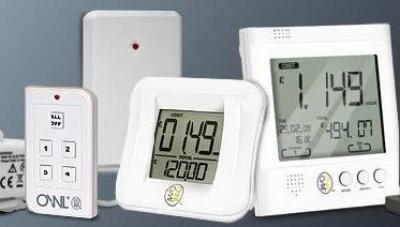Government Denies Price Hikes Will Negate Smart Grid Savings

Despite estimates that energy prices could increase by as much as 60 percent, the government has said smart metering could help cut bills in the long term
Concerns that rises in energy costs of up to 60 percent by 2020 could effectively wipe-out any reduction in bills offered by the introduction of smart meters and grids have been denied by the government.
Speaking to eWeek Europe UK, a spokersperson for the Department of Energy and Climate Change (DECC) said that it was wrong to suggest that the introduction of smart meter technology would be undone by price rises of up to 60 percent predicted by energy watchdog Ofgem this week.
“Smart meters empower the consumer to see how much energy they are using and then they can go away and make as much saving as they want and if they make no savings then their bill will go up more than if they do make a saving,” the spokesperson said. “It is not going to negate it – it will still mean that consumers will be able to pro-actively save themselves money.”
The spokesperson denied that rolling out smart meters and other technology would effectively allow the UK to stand-still in terms of pricing. “No one is going to make that sort of prediction. The bottom line is that smart meters are going to save people money,” the spokesperson said. “We have been clear that prices are not going to go down. We have to move to low carbon energy because of climate change and we have to realise that it is not going to be cheap and that bills are going to go up.”
Ofgem issued a statement this week on the issues faced by the UK’s energy sector and the resulting impact on pricing over the next 10 to 15 years. Chief among the challenges are volatile global gas market and power stations nearing the end of their life, the energy regulator said.
Investment of up to £200 billion in power plant and other infrastructure is needed over the next ten years to secure both energy supplies and climate change targets, Ofgem believes and said that as a result consumers could expect to see energy bills rise considerably during that period. The regulator said it had compiled scenarios to model the impact on pricing of the need for investment.
“…the four scenarios would result in increases in domestic energy bills of between 14 percent and 25 percent by 2020 (from 2009 levels) – with the possibility that wholesale price spikes could lead to an increase in domestic energy bills of up to 60 percent in the interim,” Ofgem stated.
However, the DECC spokesperson pointed out that the Ofgem figures did not include the impact of energy-saving technology such as smart grids and other moves towards energy efficiency. “Their figures aren’t saying this is what a bill will look like – it doesn’t take into account how much people might save if new technology is introduced,” the spokesperson added.
Ofgem has already clashed with utility companies over the potential costs of installing smart grid technology. In September, utility company bosses said the £6.5bn investment, identified by Ofgem, in smart infrastructure planned from 2010 to 2015 falls short of the funds need to overhaul power networks to cope with renewables such as wind and solar.